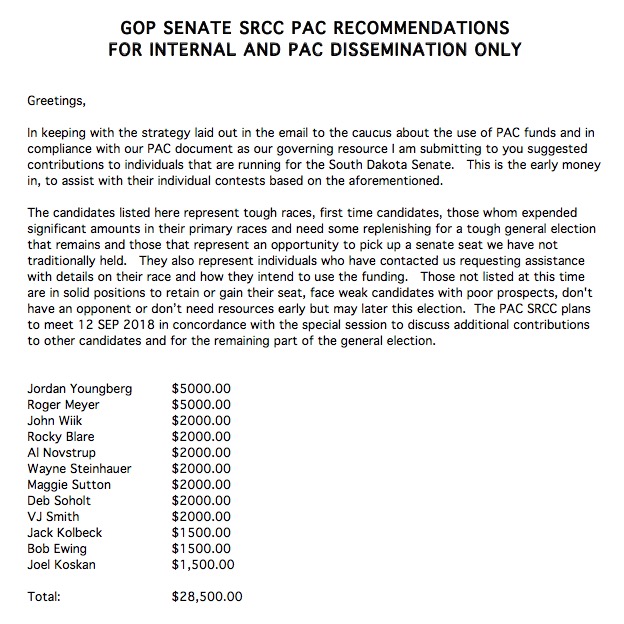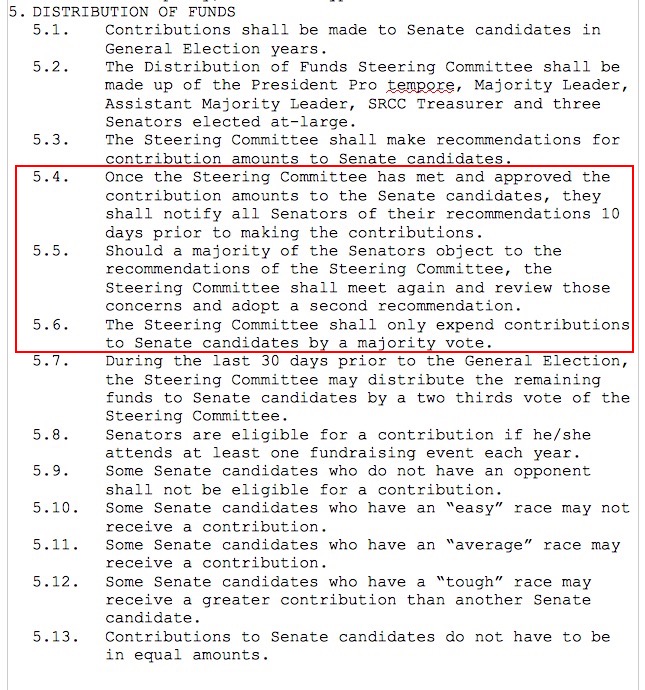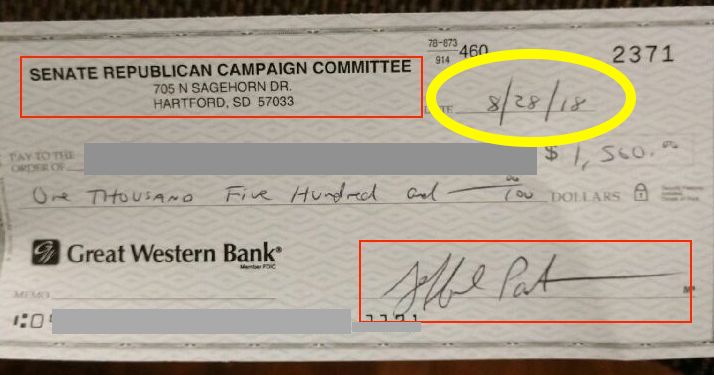Like true South Dakota Republicans, the Senate Republican Campaign Committee seems unable or unwilling to follow its own rules.
Remember that August 19, 2018, e-mail from (now-outgoing) Majority Leader Senator Blake Curd to the rest of the SRCC that I published Monday? Senator Curd followed that e-mail with a memo, apparently dated August 25, showing the amounts that the SRCC steering committee proposed giving to certain targeted Senate races:

The SRCC bylaws require this notice go to all SRCC members and that those proposed donations not be disbursed unless a majority of SRCC members approve:

But as we saw in my Monday post, secret treasurer Senator Jeff Partridge wrote at least one of those checks on August 28:

Now maybe Partridge simply prepared those checks on August 28 and didn’t send them until the SRCC actually voted. But August 28 is only three days after (now-ex) Leader Curd sent out the notification required by Bylaw 5.4, and that’s less than the ten days review required by Bylaw 5.4.
But surely (not any more) Leader Curd at least called all the members and recorded and official electronic vote from the members to ensure majority support for the steering committee’s recommendations? Republicans would never think of taking some action without holding a vote required by their own rules, would they?
Well…if its in the Constitution, maybe not, if considered unenforcable. [ “shall…advice and consent”]. Criminals stole Obama’s SCOTUS nomination of Judge Merrick Garland.
Beats me, Jason! That’s why I ask. If you’re going to write a requirement, you’d better write consequences for failing to fulfill that requirement.
But it would be better not to write pay-to-play requirements for elected officials in the first place. Why should there be any consequences for an elected official choosing not to give a PAC a donation?